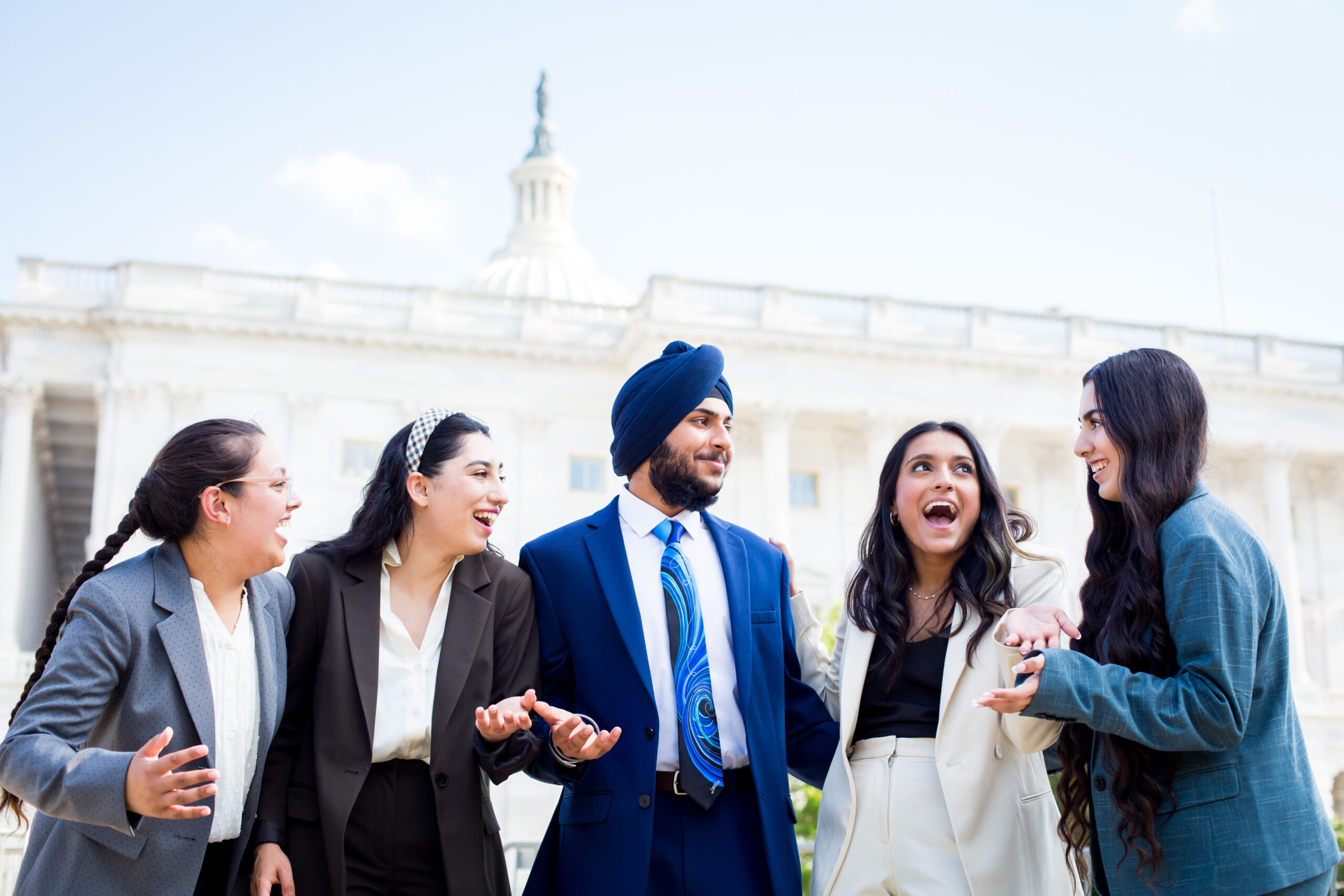Washington, DC – On April 28th, the Sikh American Legal Defense and Education Fund (SALDEF) met with the head of the Department of Homeland Security (DHS) Secretary Michael Chertoff. At the meeting SALDEF National Director Preetmohan Singh expressed the need for consistent cultural competency training for DHS’ 179,000 employees who are responsible for security at America’s airports and borders, coordinating immigration enforcement, and administering refugee agencies. “Secretary Chertoff has the tremendous task of optimizing DHS and we want to make sure that the civil rights and civil liberties we are trying to protect are held in the highest regard during this process,” said Mr. Singh. “This is a continuation of SALDEF’s effort to ensure that top government officials prioritize the notion that all Americans should be treated respectfully when interacting with federal agencies.” Mr. Singh informed Secretary Chertoff that SALDEF has trained over 6,500 local, state, and federal law enforcement officials through its Law Enforcement Partnership Program. These trainings have also included a recent presentation to instructors at the Federal Law Enforcement Training Center (FLETC) in Glynco, GA. SALDEF is the only Sikh American organization to offer trainings at FLETC, where approximately 40,000 federal law enforcement officers are required to attend annual training. The meeting was facilitated by Dan Sutherland, DHS Officer for Civil Rights and Civil Liberties, and included representatives from several other leading national civil rights organizations including the Leadership Conference on Civil Rights (LCCR), Human Rights First, the National Immigration Forum, the Open Society Institute, the Muslim Public Affairs Council (MPAC), the Arab American Institute (AAI), the Chicago Bar Foundation, and the American-Arab Anti-Discrimination Committee (ADC). In addition to training, participants at the meeting also discussed racial profiling, post-9/11 detentions, access to legal representation, and issues pertaining to asylum-seekers.
